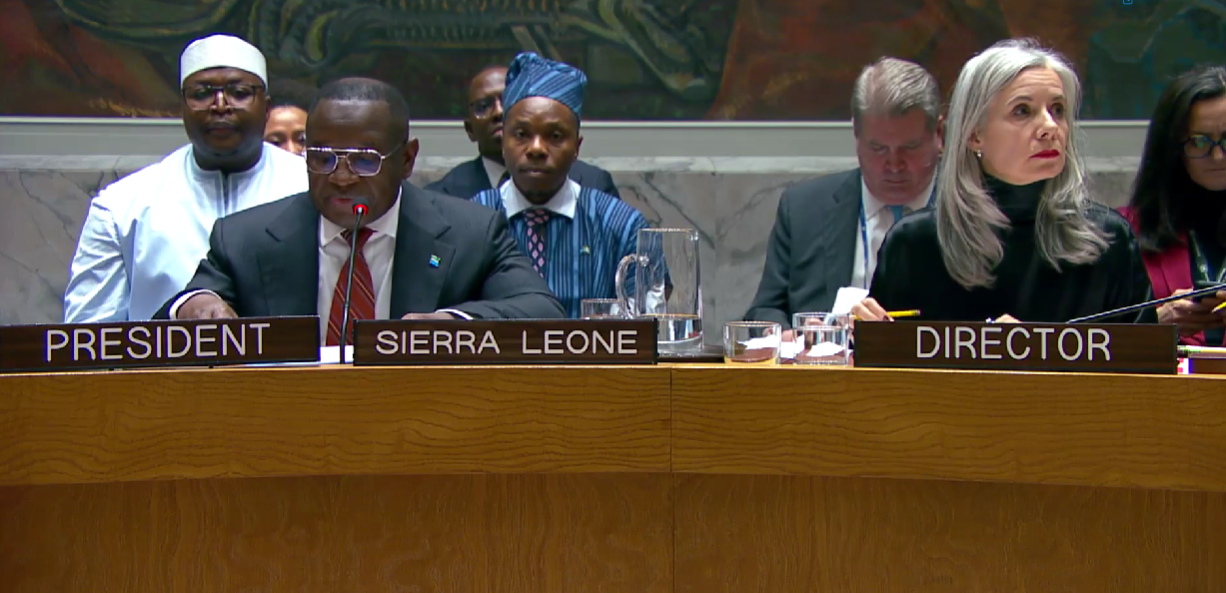
Trump’s 20-point peace plan adopted as a UN resolution; will this plan finally bring justice to the Palestinian people?
Read more from GICJ on the Plan here
By Melissa Fuhrer / GICJ
Introduction
On 17 November 2025, in a 13-0 vote, the UN Security Council adopted Resolution 2803. This resolution is built upon Trump’s 20-point plan to rebuild Gaza. Russia and China decided to abstain from voting amid concerns over the plan’s ambiguous language, a lack of a clear role for the UN in future steps, together with a want for greater Palestinian participation. This came as a shocking decision given their power of veto as permanent members of the UN Security Council. This resolution comes almost three years after the start of Israel’s genocide on Gaza, or as the UN special rapporteur puts it, Israel’s war on Gaza [1].
The Danger of Vague Language in Gaza’s ‘Peace’ Plan
Indeed, vague language has been (strategically) used in this plan. The 20-point peace plan includes ambiguous language such as “the IDF will progressively hand over the Gaza territory it occupies to the ISF [International Stabilisation Force]”, “the conditions may finally be in place for a credible pathway to Palestinian self-determination and statehood”. Further, the Gaza Reconstitution, Economic Acceleration and Transformation Trust (GREAT) asserts that “ Israel [will] maintain overarching rights to meet its security needs” throughout a multi-year transition period.
This language is intentionally vague, effectively granting Israel, the US, and any other entity or state a defence for their genocidal actions on subjective and broad concerns such as “security”.
Furthermore, and most notably, this plan does not allow for the immediate sovereignty of Palestine, and only assures statehood if the conditions are in place. With no specific timeline mentioned, this seems like an empty promise.
Who Really Benefits? Conflict of Interest in Gaza’s Reconstruction
Point 10 of the 20-point peace plan proposes “exciting development ideas” on the land of Gaza. This proposal ignores the atrocities suffered by Palestinians and instead chooses to focus on the real estate potential of Gaza. Notably, the GREAT Trust, a development plan coincidentally led by the United States (involving a “Trump Touristic Riviera and Islands”, US strategic benefits, as well as the “American Data Safe Heaven”), involves so-called “generous voluntary relocation packages” for Gazan citizens. Later in the document, this was repulsively referred to as “increas[ing] the number of Gazans who volunteer to leave Gaza [permanently] during the reconstruction”, a not-so-subtle way to continue Israel’s plan to displace Palestinians (through all means necessary) and rebuild Gaza. Interestingly, this rather contradicts the second point of Trump’s ceasefire plan, which states that “Gaza will be redeveloped for the benefit of the people of Gaza, who have suffered more than enough”. How will the people of Gaza benefit from this redevelopment if they are strongly encouraged, through subsidised rent and relocation packages, to permanently leave their homeland?
We can see a clear and unmistakable conflict of interest [2] on the part of President Trump, and we must ask ourselves if his “peace plan” actually has the best of intentions to commit to peace in the Middle East, or is rather an elaborate ploy to silence Palestinians and take their lands in an effort to gain capital.
The term “New Gaza” appears quite a few times in this peace plan, indicating that the Trump administration has already made up its mind about Gaza’s future, unsurprisingly without Palestinian voices or opinions.
A Grim Conclusion
Trump’s ceasefire plan seems to forget that victims of genocide urgently need relief efforts, well before tech zones and data centres should ever enter the picture.
In essence, this peace plan is simply smoke and mirrors, and merely institutionalises the future violence that Palestinians will suffer, whether psychological or physical. It is a strategically concocted plan to institutionalise atrocities in Palestine.
Geneva International Centre for Justice (GICJ) while commends any step towards rebuilding Gaza, it urges concrete measures be taken to establish peace and truly establish sovereignty for the Palestinian people on its land and allow Palestinians refugees to return safely to their homeland if they wish to do so. GICJ expresses concerns at the Trump administration’s overlapping of interests in the reconstruction of Gaza, and urges international organisations to assume stronger leadership and command in the region, and above all, that Palestinian voices be at the immediate forefront of shaping their own recovery and future. GICJ reminds the international community that, without ending the occupation in Gaza and the West Bank, the root cause of suffering and human rights violations towards the Palestinian people will not be addressed. It is critical to end this occupation to allow full Palestinian freedom and sovereignty.
You can read Trump’s 20-point Gaza peace plan here, and the US-led GREAT Trust here.
References & Notes:
[2] Mention of a Gaza Trump Riviera and Islands “world-class resorts” appears on the Great Trust as one of the 10 mega-projects envisioned for future Gaza









